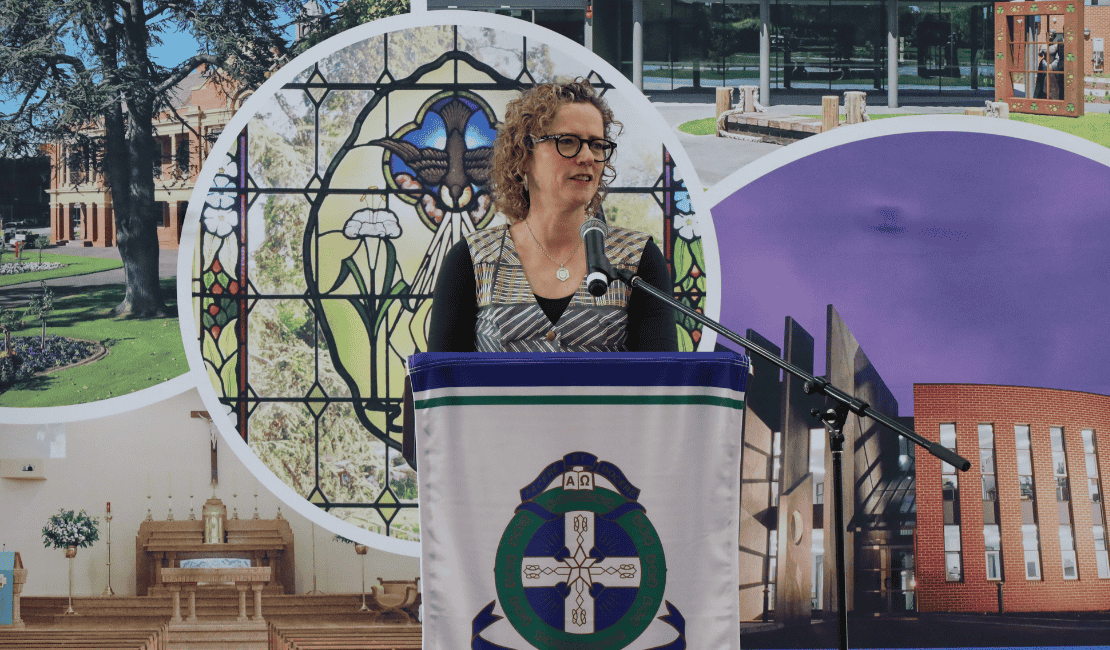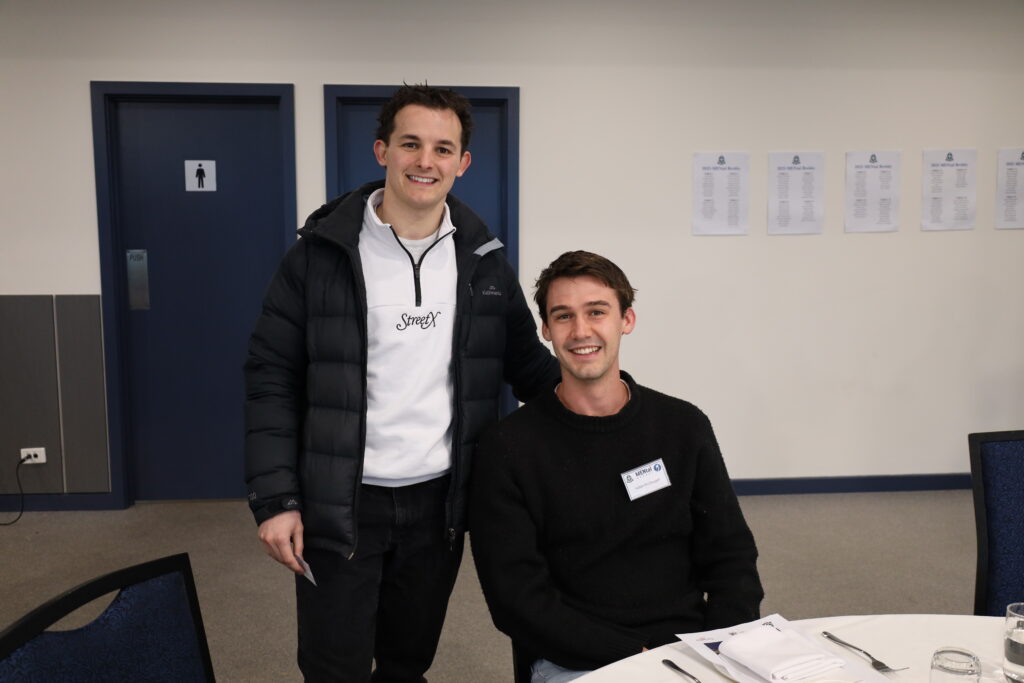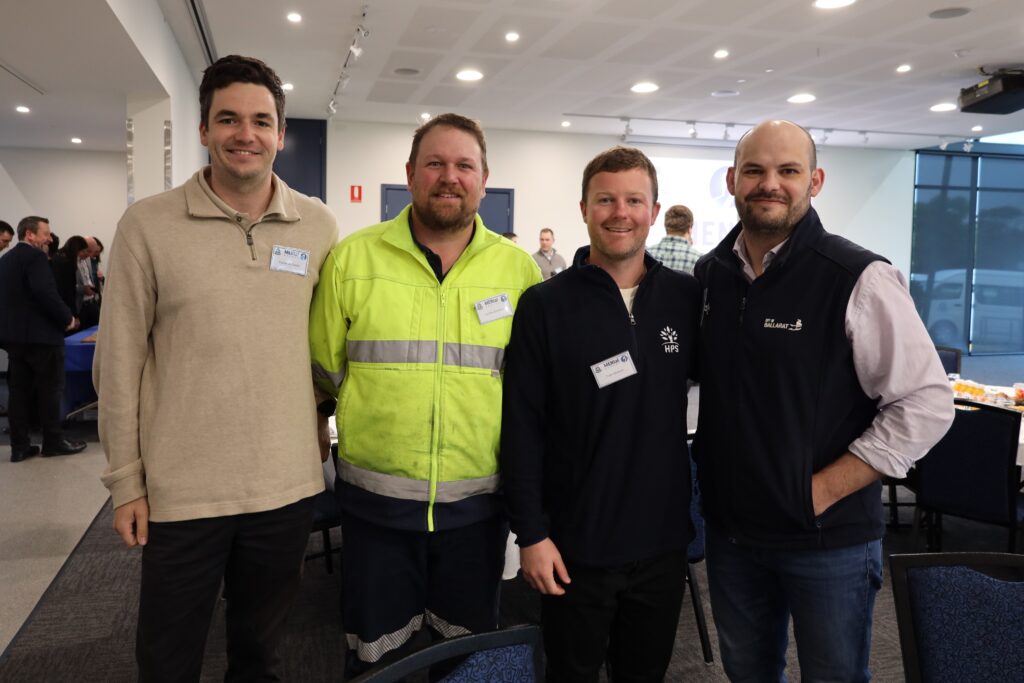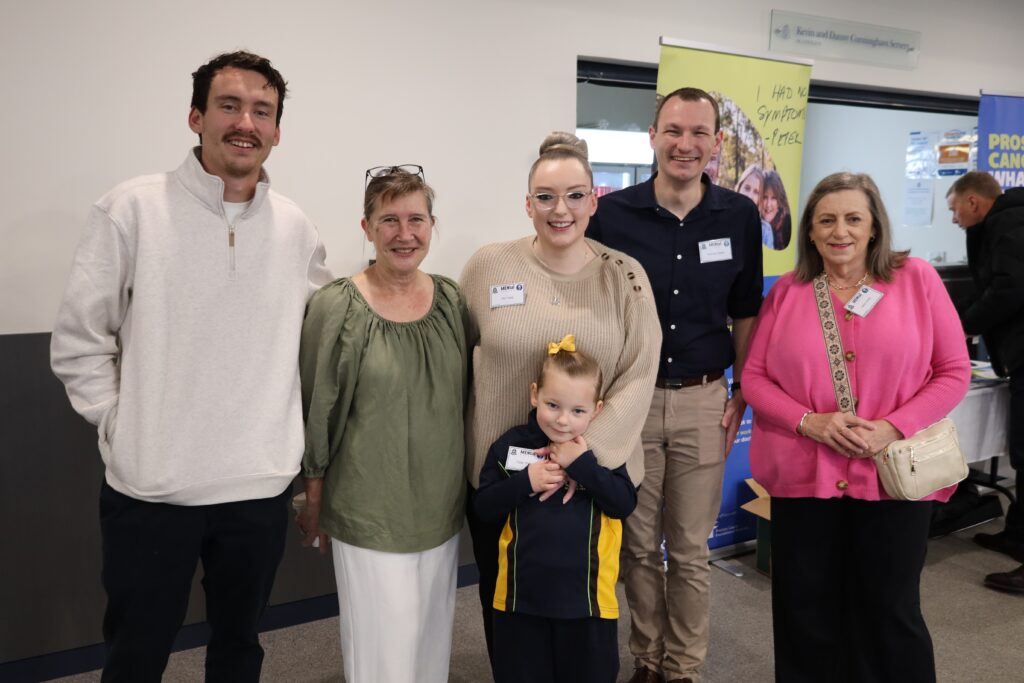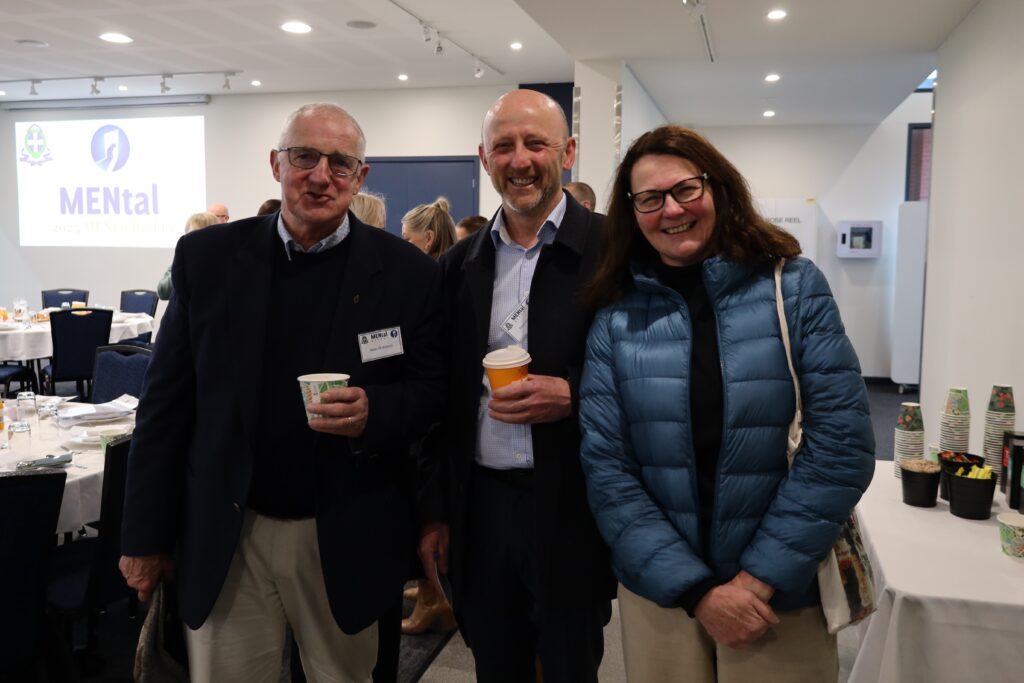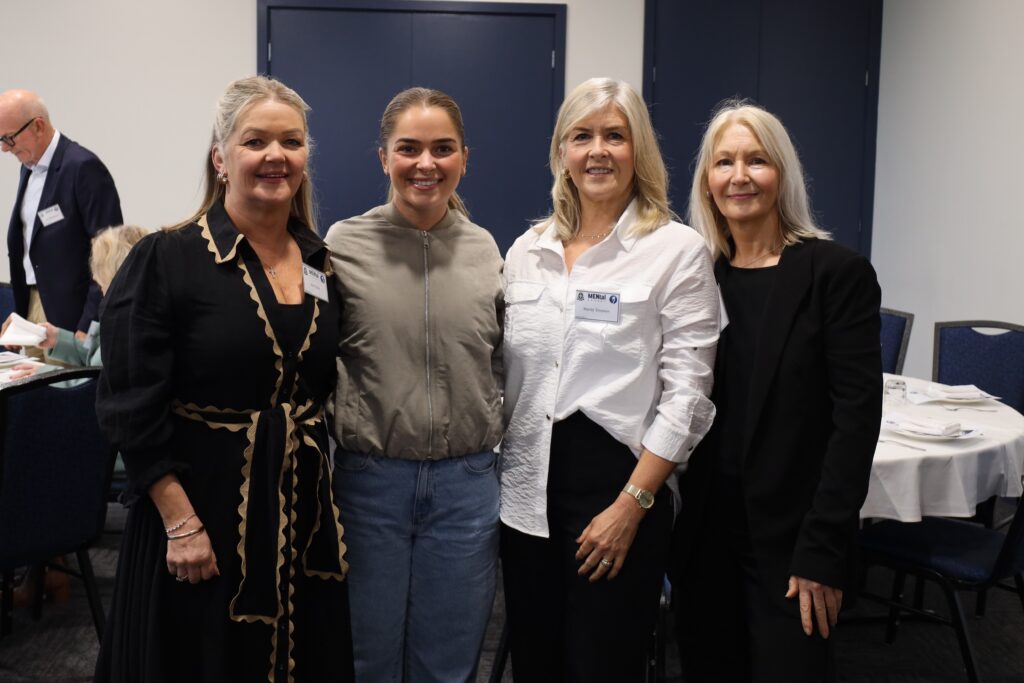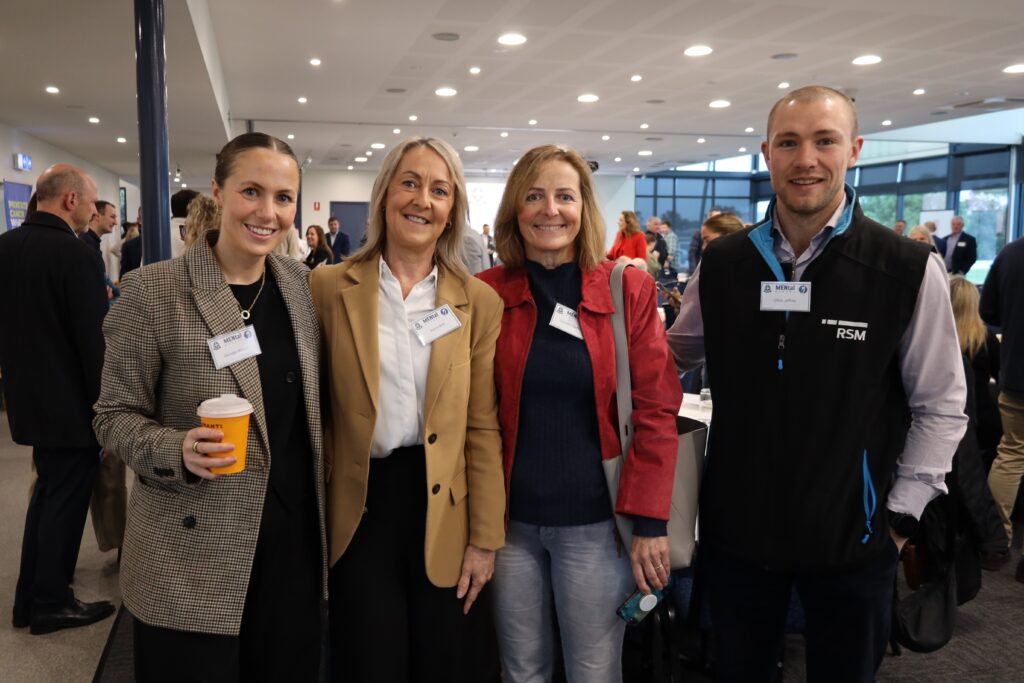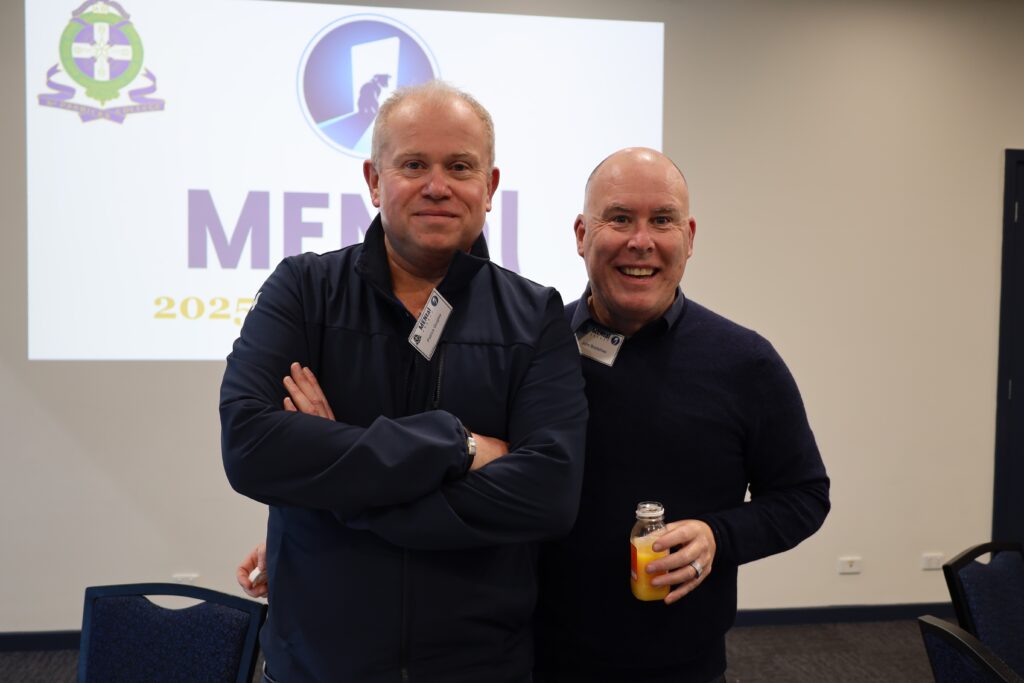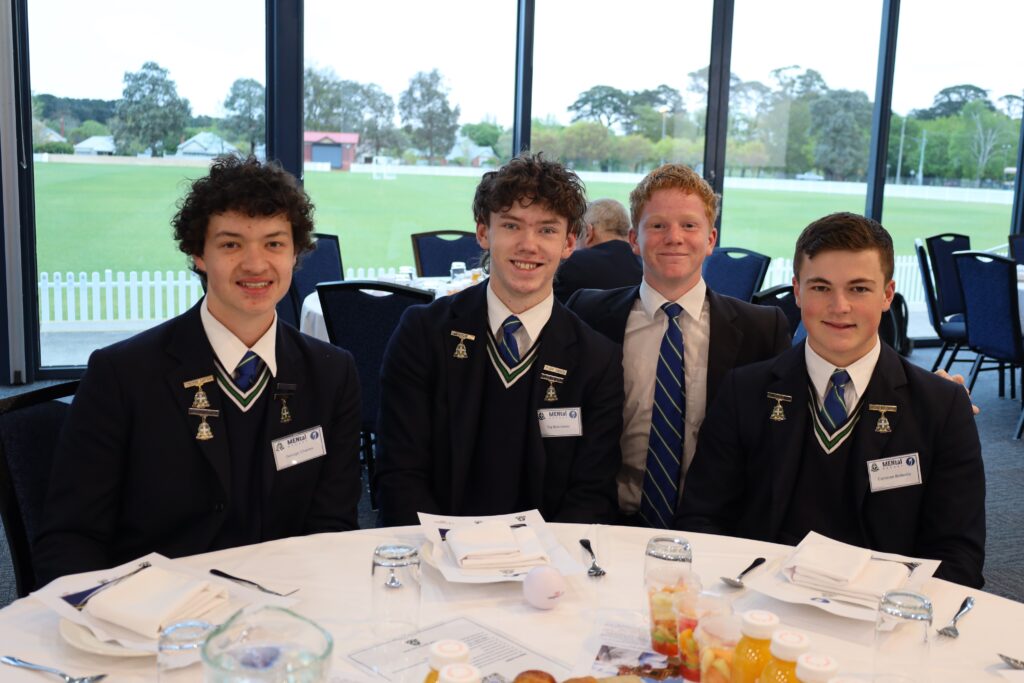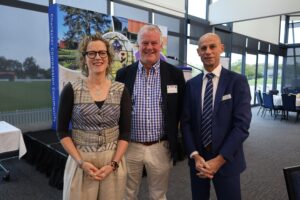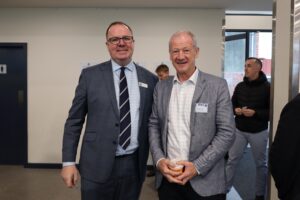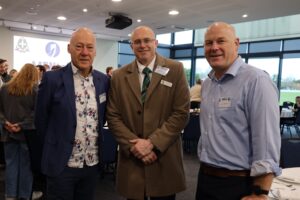Our Watch chief executive officer Patty Kinnersly delivered a powerful message to this year’s audience at the 2025 MENtal Brekky around respect and healthy masculinity.
Patty was guest speaker at the ninth-annual brekky, held as the main fundraiser for the College’s Chris Yeung Fund, which aims to raise awareness of and provide financial assistance for families in the St Patrick’s College community where the father is suffering mental illness.
The brekky was held at the OCA Pavilion, overlooking the Main Oval, on Friday morning, 24 October 2025.
This year also marked the 10th anniversary of the passing of Chris Yeung – a much-loved Old Collegian to suicide. The Chris Yeung Fund was created by some of his classmates to raise awareness of men’s mental health and help current families in a practical way.
Patty is the CEO of Our Watch, which works to embed gender equality and prevent violence where Australians live, work and socialise.
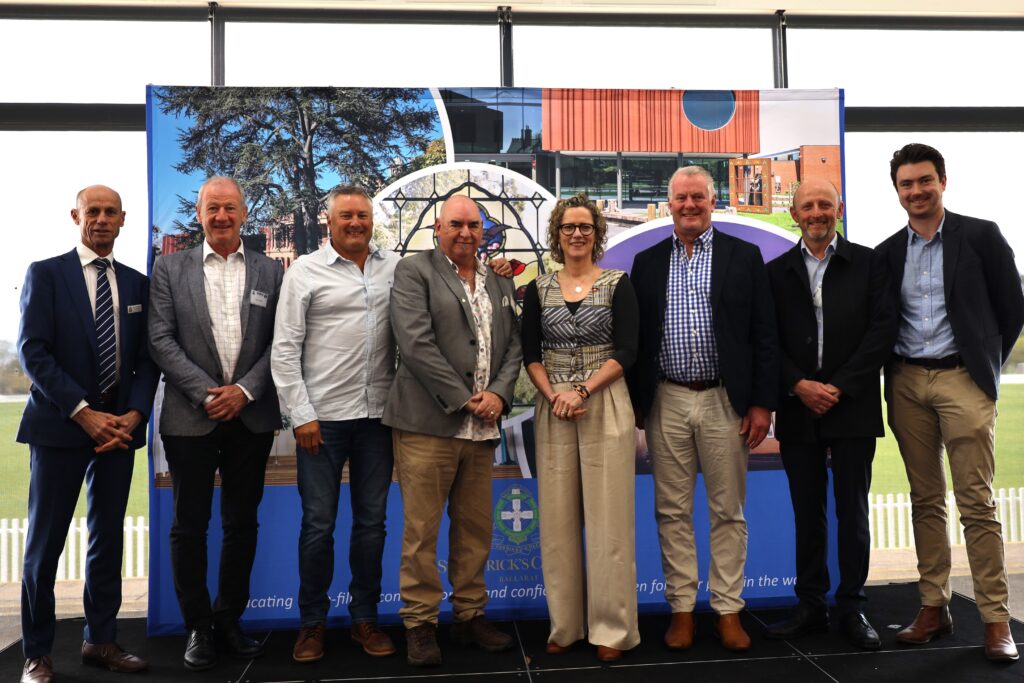
Patty, who lives in Ballarat, combines her passion for this important cause with her role as director of the Carlton Football Club and non-executive director and secretary of the Australian Women’s Health Network national board.
“Poor mental health is an issue that touches individuals and families, in every school, every workplace and every community,” Patty told the audience.
“It’s an issue that has taken far too many lives, disproportionately, the lives of men: – and like all serious issues, we all have a role to play in both supporting individuals but also in understanding, challenging and changing the things we know are contributing to the issue – and are in our sphere of influence.”
Patty said it was deeply worrying that men’s wellbeing was deeply interlinked with the way we define masculinity and expectations we, as a society, “put on men to live up to that definition”.
Statistics, she said, show in Australia, men are far more likely to die by suicide than women. They are also more likely to be engaged in risk taking behaviours; alcohol abuse, gambling and road traffic accidents, and they are less likely to seek help.
“We know too that many men carry emotional burdens in silence; because of shame, and because the world often expects men to be tough, to fix things, to soldier on.
“We also know that the behaviours and social expectations around masculinity, put simply …the idea of what a man should be, can restrict men from seeking help, from connecting, from showing vulnerability.”
This means when talking about men’s mental health, Patty said, we are not just talking about individual problems but about social norms, expectations and how we define masculinity.
A national study called The Man Box has shown that when men and boys feel there is only one way to be a man, that they must be tough, in control, dominant and not reach out for help, that this is doing them harm and it is also causing harm to those around them.
These messages, from society, social media and even their mates, are like an invisible set of rigid rules, Patty said, that tells men they only have value if they behave a certain way.
When they feel stuck, they’re more likely to struggle with mental health, act aggressively and feel disconnected.
“So whilst we as a community continue to perpetuate these ideas of what it is to be a ‘real man’, it is hurting the people we care about.
“For clarity, this does not mean, men can’t be some of these things some of the time, the problem comes when they feel they can only be those things.”
Patty challenged the audience that if we wanted to take masculinity seriously, we need to find ways to broaden our ideas of what it means to be a man.
“Does being strong have to mean not reaching out for help, does stoic mean you can’t be self-aware … does being manly have to mean using violence as a way to express yourself. I don’t think so.”
Patty highlighted a Our Watch campaign called The Line, which is aimed at young people aged 14 to 20.
“It’s all about helping them understand what healthy, respectful relationships look like.
“Why is this relevant to men’s mental health? Because when young men have healthy relationships with their friends, their partners, their families, they are more connected, less isolated, more emotionally resilient.”
Patty and AFL premiership player Ben Brown, who has developed a keen interest in this area, held a presentation with our Year 10 students following the brekky.
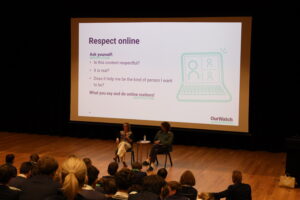
A recent study from the Australian Institute of Family Studies also talked about the power of role modelling in shaping ideas about masculinity – particularly from men.
Encouragingly, Patty says the conversations she has with young men indicate they want to be in a world where they have respectful relationships.
She urged the audience to reach young people, particularly young men and boys, where they already spend their time and in the environments where they feel safe.
“These spaces give us, the adults, opportunities to model respectful relationships, show different versions of masculinity and importantly, to show up if a young man needs support.
“Everything we know about preventing violence against women tells us that promoting equality and challenging rigid stereotypes must be embedded, normalised and visible across the entire community.
Patty urged the audience to keep working towards the community we all want.
“We want to grow boys up with good mental health, with the ability to ask for help, to demonstrate a broader, less rigid version of masculinity … if we achieve that, we can achieve that community we desire, where everyone, regardless of their gender is safe and free to be whichever version of themselves they choose.”
The College also thanks major sponsor, the Catholic Diocese of Ballarat Bishop’s Charitable Fund and sponsor G.J. Gardner Homes for their support of the brekky.
To learn more about Our Watch, go to www.ourwatch.com.au

